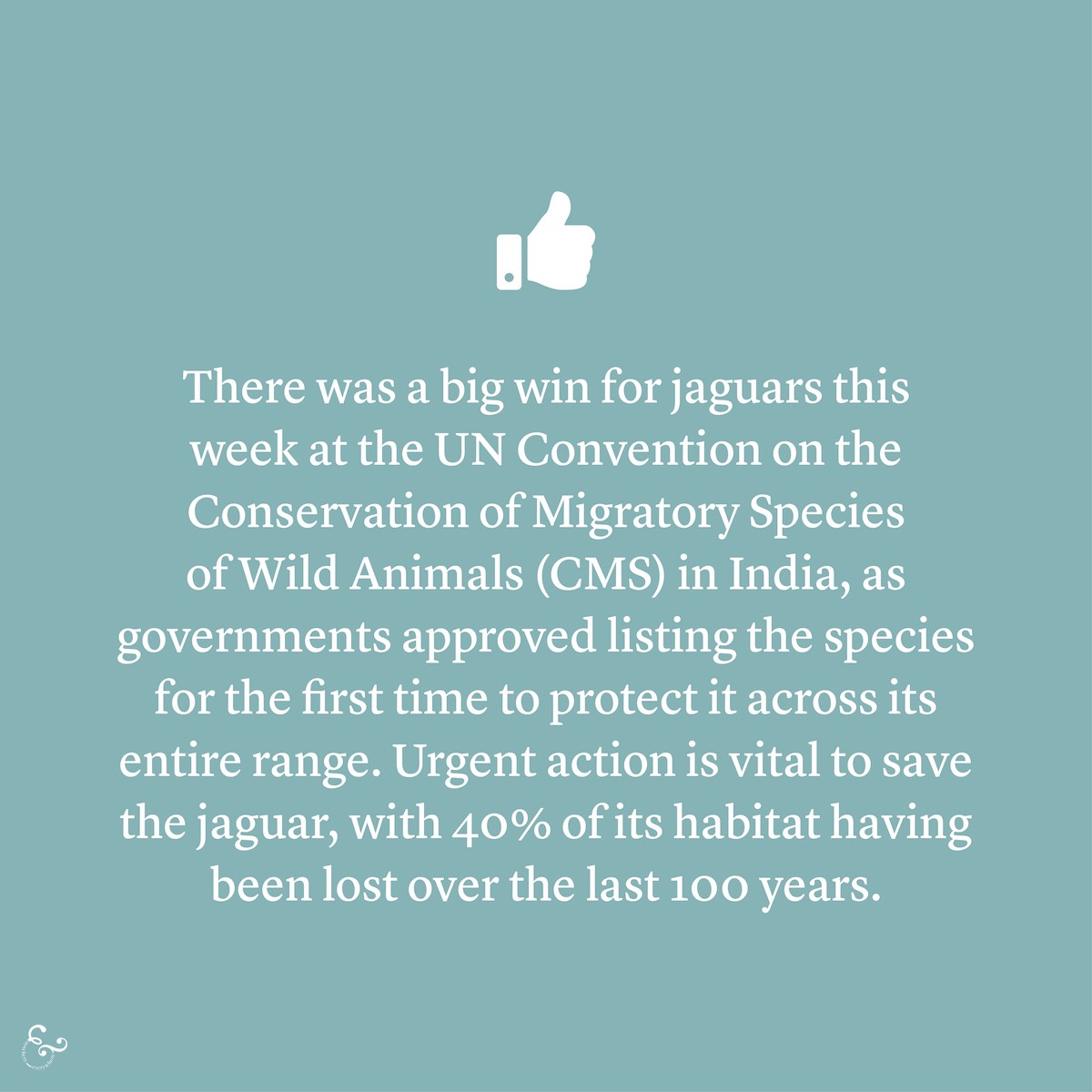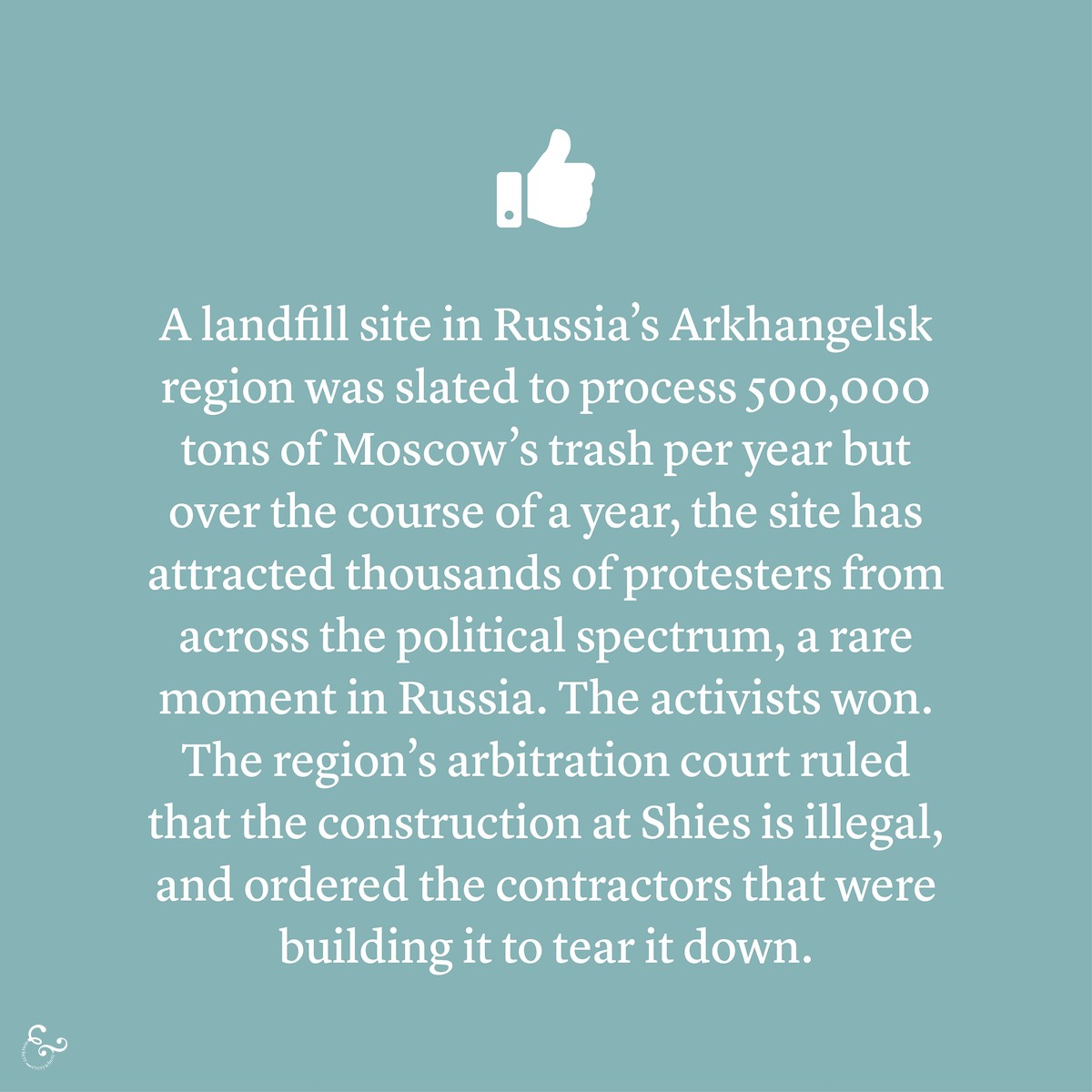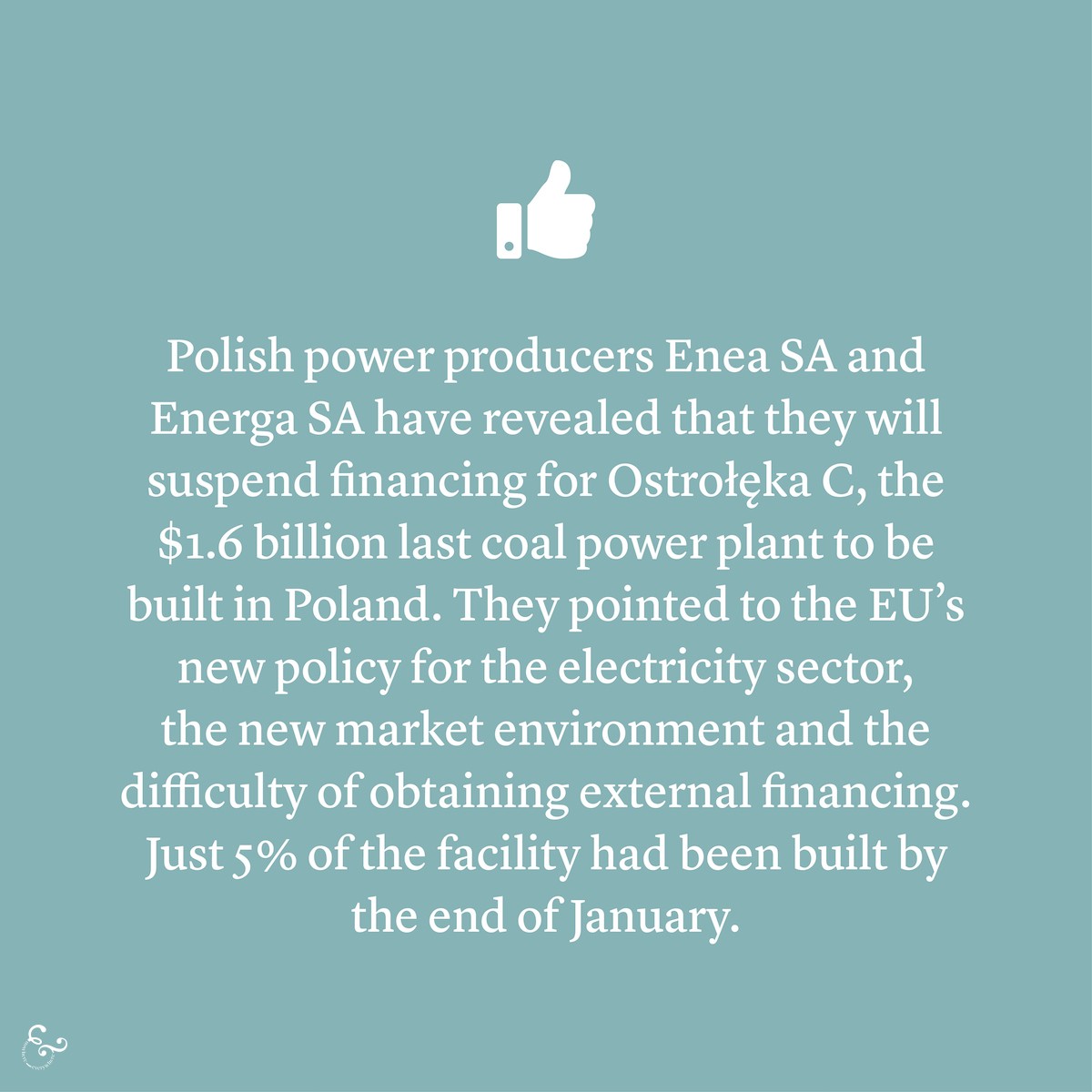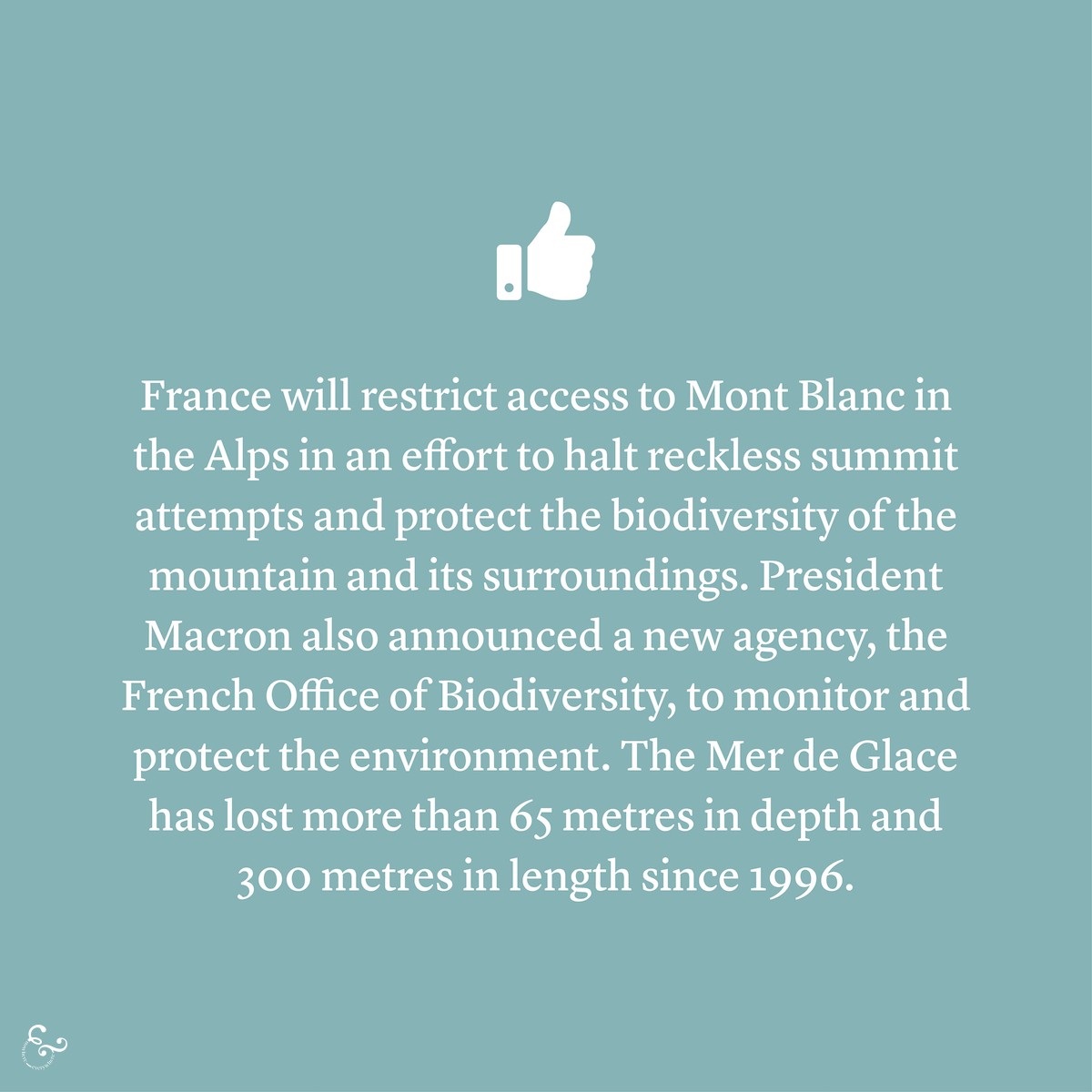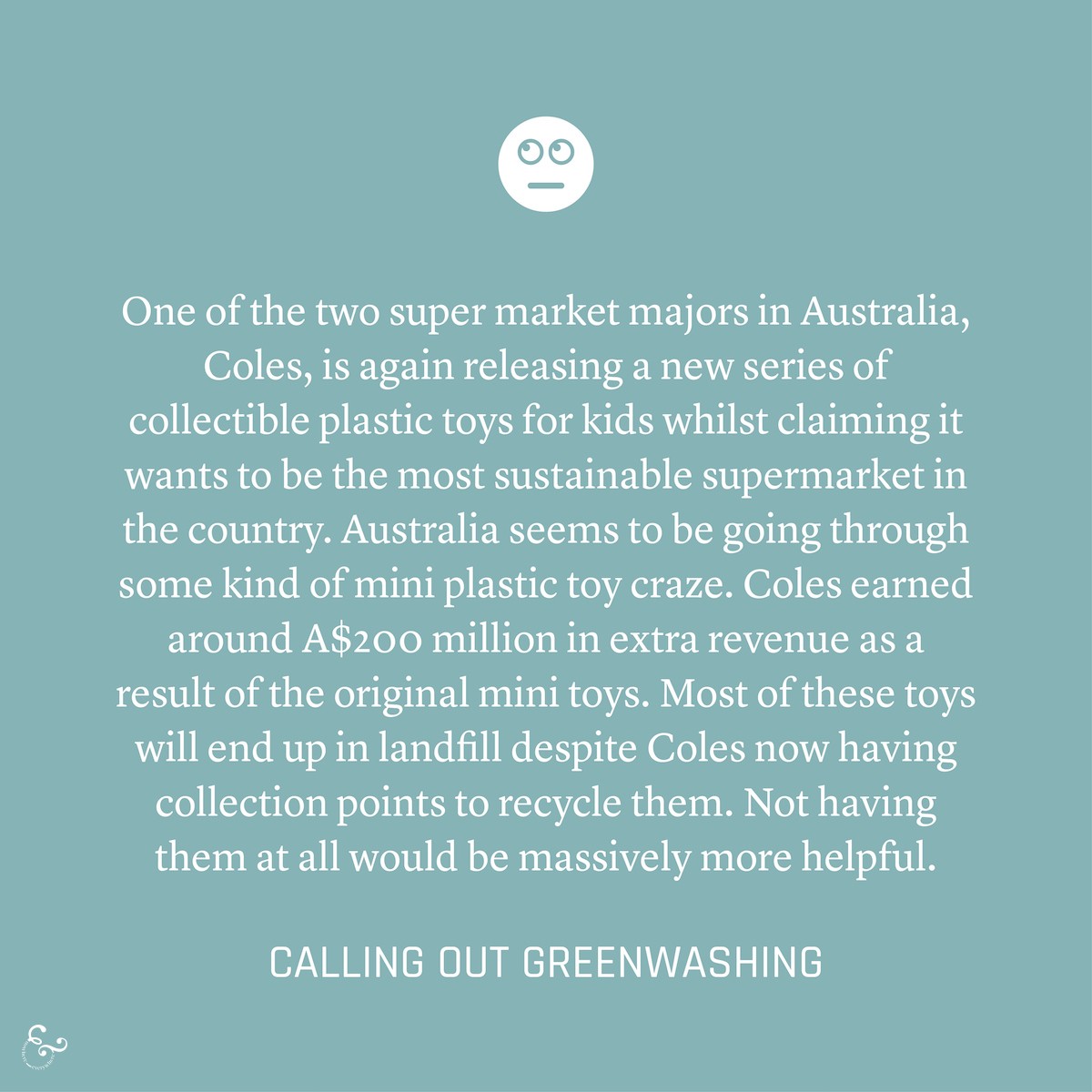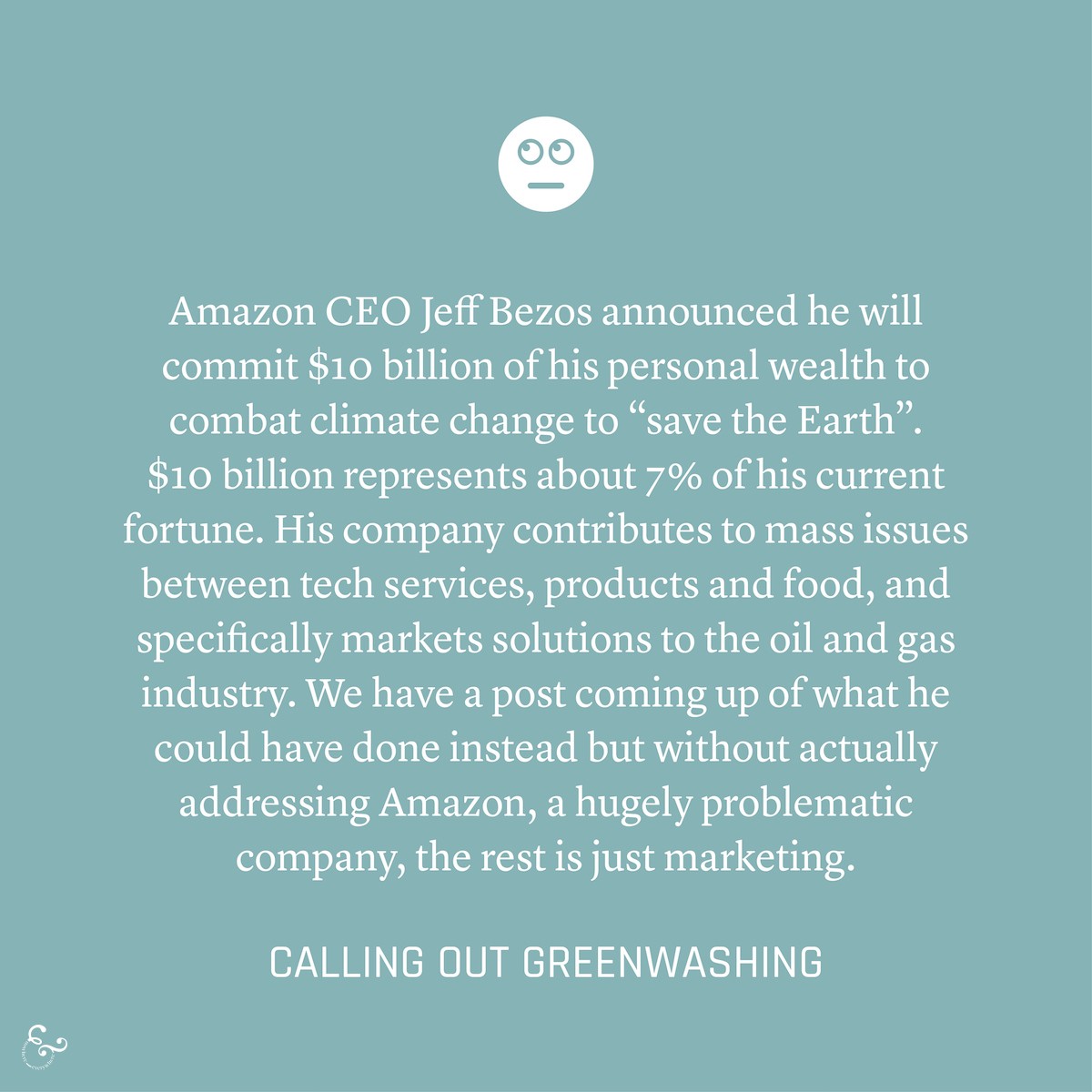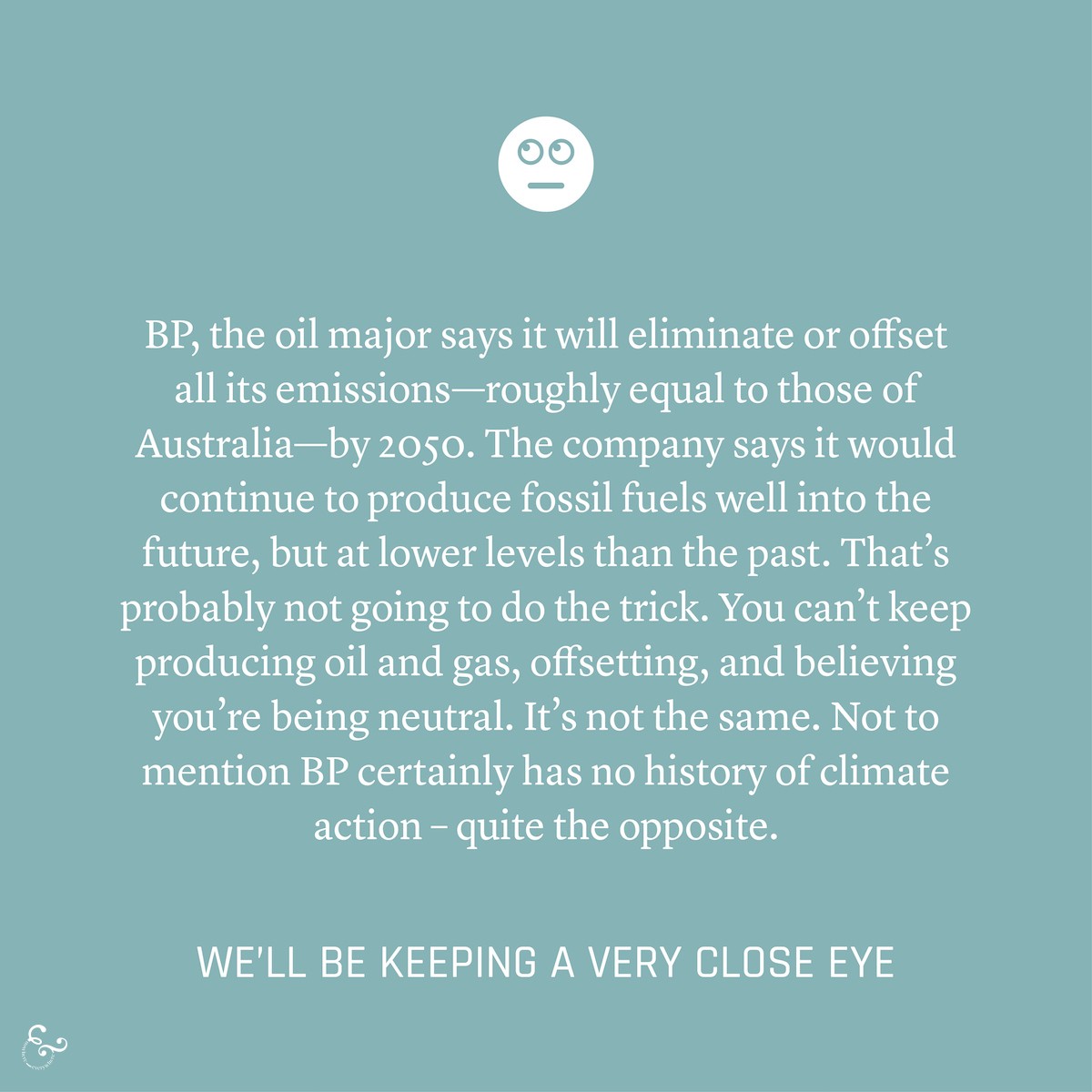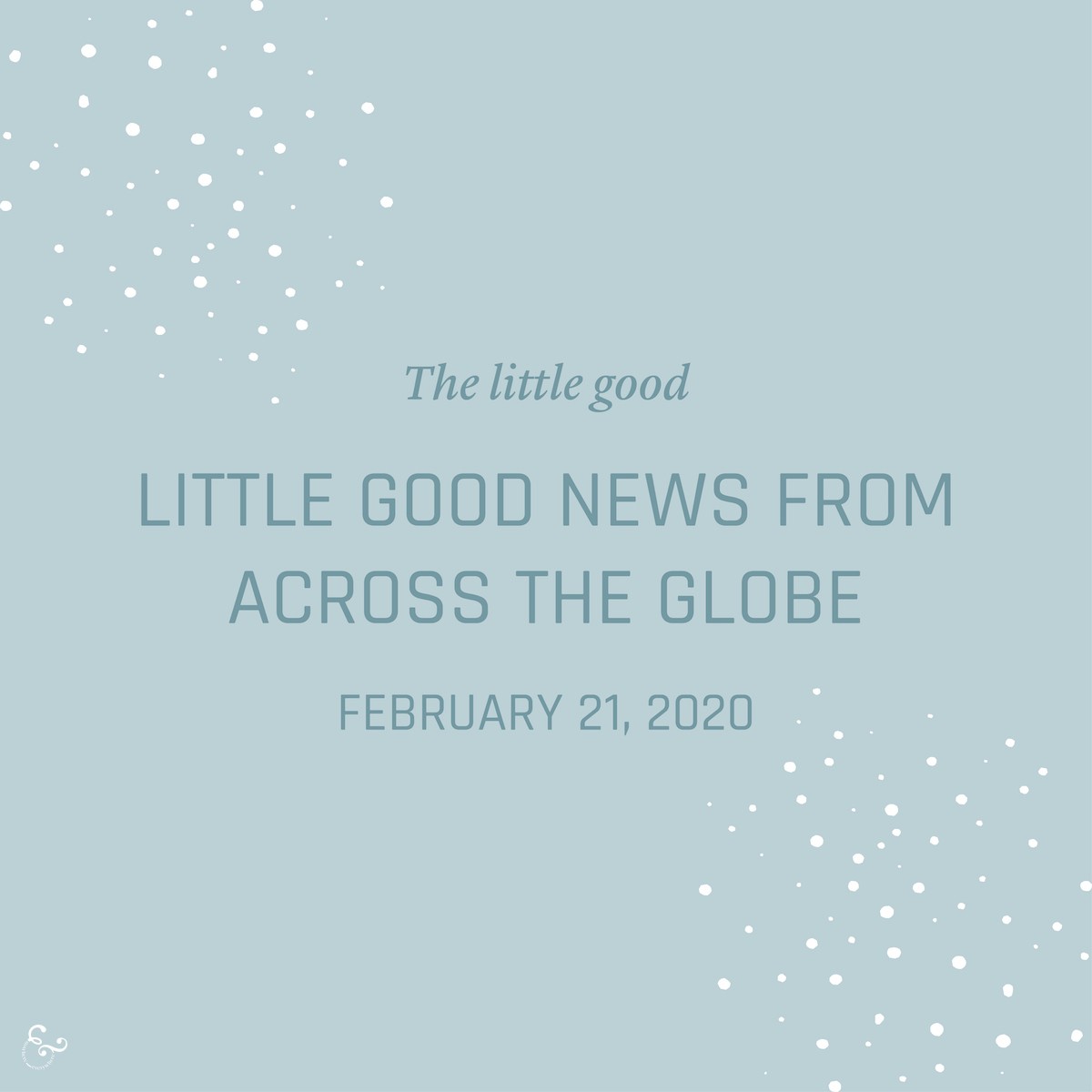Every week we do a major roundup of environmental news across the world. It is really important we all know it and share it, but it can also be pretty disheartening. The bad news is nearly always on a much, much larger scale than the good. The next few years are probably going to look the same as we enter climate feedback loops, profit incentives continue to grow, population increases and we continue to stall on our Paris Agreements. We’re interested in education, understanding systems, and the levers we can all pull for change.
But during this mammoth effort every week, we also get to see lots of little good news stories pass through our initial filter which we’re posting here. We can use these to inspire us, give us ideas in our own communities and potentially scale them up. Environmental good news can often be fairly greenwashed so we’re not interested in that and won’t consider it good news. If you see a story and decide to implement it where you live, we’d absolutely love to hear about it! Please tag us in or email us and let’s create a world of lots of local change which collectively has big impact.
- There was a big win for jaguars this week at the 13thConference of the Parties (CoP) of the UN Convention on the Conservation of Migratory Species of Wild Animals (CMS) in India, as governments approved listing the species for the first time to protect it across its entire range. Urgent action is vital to save the jaguar, with 40% of its habitat having been lost over the last 100 years. (International Fund for Animal Welfare)
- The landfill site in Russia’s Northwestern Arkhangelsk region was slated to process 500,000 tons of Moscow’s trash per year, and is being built near a railway station called Shies. Over the course of a year, the Shies camp has attracted thousands of protesters from across the political spectrum, marking a rare moment of unity for Russians in a fractured social landscape. Throughout their year of protest, the activists were routinely harassed, braved bitterly cold weather and official reprisals in order to be heard. The activists won. The region’s arbitration court ruled that the construction at Shies is illegal, and ordered the contractors that were building it to tear it down. (The Ecologist)
- Polish power producers Enea SA and Energa SA have revealed that they will suspend financing for Ostrołęka C, the last coal power plant to be built in Poland. The two companies said they decided to suspend financing for the project in northeastern Poland due to the new market environment and the difficulty of obtaining external financing. They also pointed to the European Union’s new policy for the electricity sector as another decisive factor in their decision to effectively suspend construction of the $1.6 billion plant with the two main contractor. Just 5% of the facility had been built by the end of January. (PV Magazine / Forbes)
- France will restrict access to Mont Blanc in the Alps in an effort to halt reckless summit attempts and protect the biodiversity of the mountain and its surroundings. Emmanuel Macron announced the new rules during a visit to Chamonix on Thursday when he visited the famous Mer de Glace glacier, which has shrunk dramatically over the last 20 years. He announced a new agency, the French Office of Biodiversity (OFB), to monitor and protect the environment. As many as 30,000 people attempt to climb Mont Blanc every year – around 200-300 a day. Some ignore weather and safety warnings and many leave rubbish on the mountain. The Mer de Glace has lost more than 65 metres in depth and 300 metres in length since 1996. (The Guardian)
Calling out greenwashing
BP, the oil major says it will eliminate or offset all its emissions—roughly equal to those of Australia—by 2050. The company would continue to produce fossil fuels well into the future, but at lower levels than the past. The company will not only seek to eliminate emissions associated with its operations, but those of its customers who consume oil and gas produced by BP. Err, that’s probably not going to do the trick. You can’t keep producing oil and gas and believing you’re being neutral. It’s not the same. And BP certainly has no history of climate action – quite the opposite. (Scientific American)
One of the two super market majors in Australia, Coles is again releasing a new series of collectible plastic toys for kids whilst claiming it wants to be the most sustainable supermarket in the country. Australia seems to be going through some kind of mini plastic toy mania. Coles earned around A$200 million in extra revenue as a result of the original mini toys (Little Shop). There was some backlash on the waste which has apparently been addressed by using some recycled content, and having collection bins for the toys to be repurposed into shoe soles. There are so many problems here. The fact those bins even exist means they’re understood to be throw-aways. And they shouldn’t exist in the first place. Supermarkets already have a massive issue with waste from packaging to food. Plastic is made from fossil fuels, it requires shipping and then is thrown away. Recycling them is also energy intensive. Australians also don’t recycle well compared to many other industrialized nations and are known for co-mingled recycling issues. Most of them will end up in landfill. The toys serve no need whatsoever and are for marketing and boosting revenue purposes only. (The Conversation)
Amazon CEO Jeff Bezos announced he will commit $10 billion of his personal wealth to combat climate change to “save the Earth”. $10 billion represents about 7% of his current fortune. His company contributes to mass issues between tech services, products and food. Here’s what he could have done instead:
🙎 Implement ethical labor only. Don’t try to fire people for speaking out.
🏭 Reject fossil fuel clients and stop making solutions for them.
🍃 Don’t sponsor any climate denying groups.
☀️ Work MUCH faster to switch to renewables.
♻️ Stop the plastic packaging onslaught.
🛍️ Change the Amazon business model so that it doesn’t fuel hyper-consumerism.
🚚 Overhaul logistics so it’s sustainable.
💰 Lobby to close loopholes, end subsidies and pay proper taxes as a global, multi-billion dollar company.
🌳 Lobby for a tax on pollution.
🚀 Don’t spend billions on space travel. And mansions.
If you don’t do that, the rest is just marketing. (Mongabay / Vox)
Prada has signed a deal worth €50m with financial services company Crédit Agricole Group in an effort to champion sustainability. The five-year sustainability loan allows for the Italian fashion house to alter its interest rates on an annual basis if it achieves certain eco-friendly objectives. These three objectives, as chosen by Crédit Agricole, are if Prada employees train or work for a certain amount of time, if the fashion house uses an adequate quantity of sustainable nylon substitute Re-Nylon, and if a certain number of Prada stores receive LEED (Leadership in Energy and Environmental Design) gold or platinum certifications. We don’t know whether to be more annoyed at the bank or the company. If these are the low goals we’re going to set, we should be able to loan billions interest free. (Independent)
